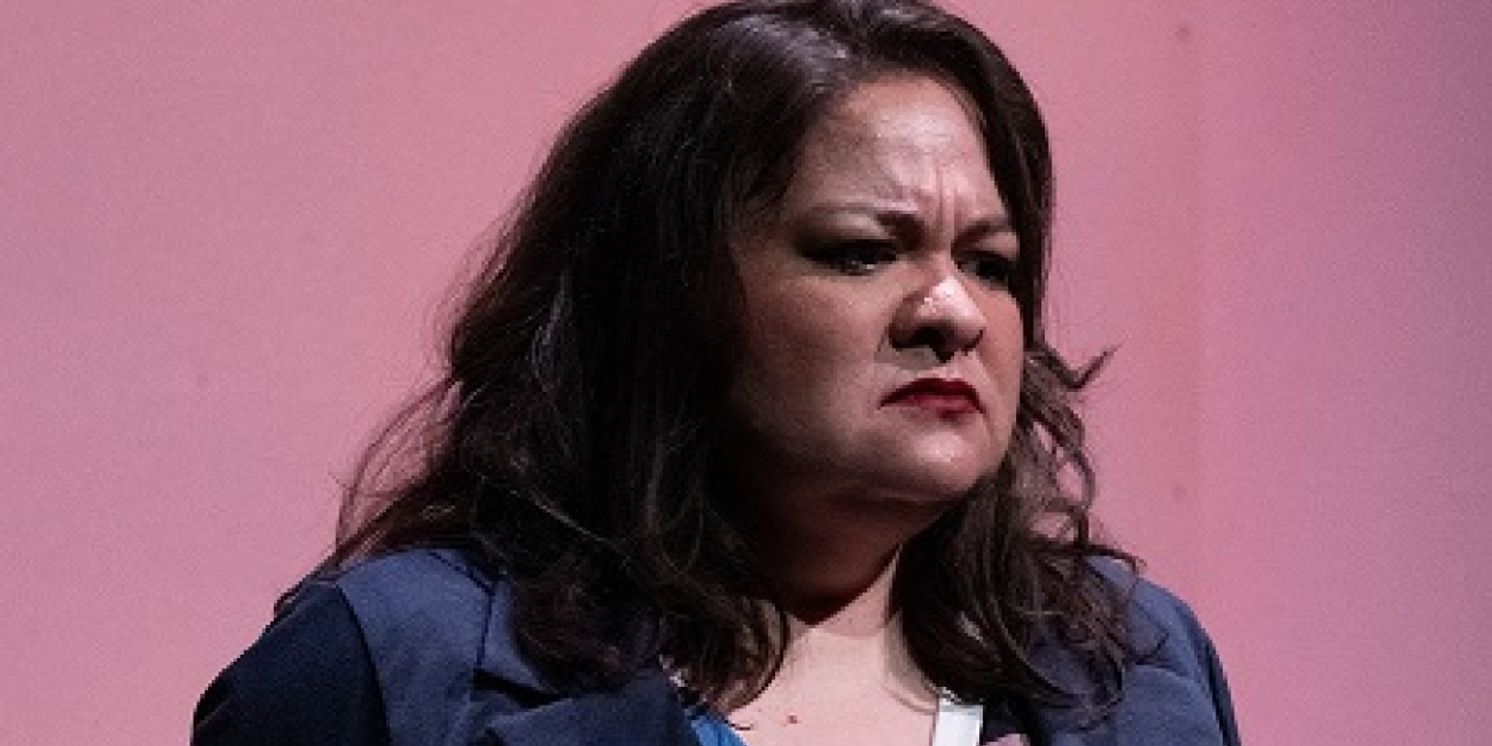Review: FETAL at Stray Cat Theatre
The production runs through March 1st at Tempe Center for the Arts, Studio Theatre in Tempe, AZ.

Trista Baldwin’s FETAL is a raw, unflinching exploration of the politics, ethics, and emotional minefield of pregnancy, choice, and the female body. Baldwin’s work (Patty Red Pants, Doe, Sand) is known for its bold interrogation of contemporary issues through deeply personal narratives, and FETAL is no exception; it’s a visceral and provocative piece that forces its audience into an uncomfortable yet necessary confrontation with the realities of reproductive autonomy in a post-Roe America.
At its core, FETAL is a meditation on the collision of the personal and political. The play (on stage at Stray Cat Theatre through March 1st) centers on four women in a Texas clinic, each bringing a unique perspective and emotional weight to the narrative. Cass, played by Kate Haas, is the pragmatic and guarded voice of experience, attempting to navigate a situation she thought she had control over. Lucy, portrayed by Dolores E. Mendoza, carries the weight of cultural and familial expectations, her journey marked by deep internal conflict. Wyatt Murphy’s Liv embodies youthful uncertainty and defiance, grappling with the implications of autonomy and societal judgment. Debra Lyman’s Anne serves as both a grounding force and a living contradiction, shaped by years of personal history and a quiet yet palpable resolve. She is more than an intake volunteer—she has been placed by the playwright to serve as shepherdess, a relentless moral interrogator and conscience, tending to the deepest fears, pains, and ambivalences of these three women. She probes, she questions, she nudges, forcing the women to confront the truths they might rather avoid, guiding them through the unknown with a presence that is at once unsettling and profound.
Each of these performances elevates the material, bringing depth, nuance, and authenticity to Baldwin’s already potent script. Haas imbues Cass with a layered toughness, revealing cracks in her armor that speak volumes about the emotional cost of her choices. Mendoza’s Lucy is a study in quiet turmoil, her performance simmering with the tension of deeply ingrained cultural and familial expectations. Murphy delivers Liv’s youthful volatility with a rawness that makes her arc particularly compelling—a young woman both brash and deeply vulnerable. Lyman’s Anne radiates a mixture of wisdom and pain, embodying a lifetime of reckoning with the very issues at the heart of the play. Her performance adds a crucial dimension to the work, as she navigates between observer, participant, and guide, bridging the gap between the past and present struggles of reproductive autonomy.
Baldwin doesn’t offer easy answers; instead, she crafts a fragmented, emotionally charged theatrical experience that mirrors the complexity of the subject itself. The script shifts between reflective monologues and stark, intimate exchanges, creating a mosaic of voices that reflect the cacophony and pain surrounding reproductive rights.
What makes FETAL so compelling is Baldwin’s ability to capture the intimate physical and psychological dimensions of pregnancy and a woman’s choice with haunting precision. The women’s bodies become a battleground—an arena of mixed emotions, values, and personal reckonings. The play’s language is blunt, underscoring the way in which discourse around reproduction is often split between the deeply personal and the brutally impersonal.
FETAL lands at a critical moment in American history, where reproductive rights have been undermined. However, the play is not a polemic. It is exposition: it transmits with urgency the anxieties of a nation of women reckoning with the rollback of Roe v. Wade, making the play both timely and timeless. Baldwin doesn’t just explore the complexities of reproductive rights; she embodies them in a gut-wrenching drama that forces the audience to grapple with the implications on a deeply human level.
The staging of FETAL, directed by E. E. Moe, plays a crucial role in its impact. The play thrives in a space where intimacy and immediacy are paramount. Thus, Tiana Torrilhon-Wood’s antiseptic waiting room adds an additional layer of tension.
Ultimately, FETAL is not just a play about reproductive rights; it is a play about power—who has it, who wields it, and who is left to navigate the consequences. But it is also a play about resilience, about the shared strength of women who refuse to be mere subjects of policy or victims of circumstance. Baldwin refuses to coddle her audience, offering instead a work that is harrowing, poetic, and unshakably relevant.
For those willing to engage with its stark realities, Stray Cat Theatre’s production of FETAL is a necessary, gripping, and unforgettable theatrical experience—one that demands not only contemplation but also collective action and solidarity.
FETAL runs through March 1st at Tempe Center for the Arts, Studio Theatre ~ 700 W. Rio Salado Parkway, Tempe, AZ
Stray Cat Theatre ~ https://straycattheatre.org/ ~ 480-227-1766
Tempe Center for the Arts ~ https://www.tempecenterforthearts.com/ ~ 700 W. Rio Salado Parkway, Tempe, AZ ~ 480-350-2822
Photo credit to John Groseclose: Dolores E. Mendoza as Lucy
Reader Reviews

Videos

